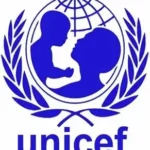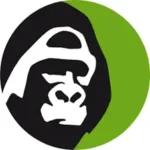National consultant to Strengthening primary health care outreach services for adolescents at UNICEF | July 2024
Job Description
National consultant to Strengthening primary health care outreach services for adolescents’ health and well-being, Dar es Salaam, Tanzania
Job no: 574054
Contract type: Consultant
Duty Station: Dar-es-Salaam
Level: Consultancy
Location: United Republic of Tanzania
Categories: Health
UNICEF works in some of the world’s toughest places, to reach the world’s most disadvantaged children. To save their lives. To defend their rights. To help them fulfill their potential.
Across 190 countries and territories, we work for every child, everywhere, every day, to build a better world for everyone.
And we never give up.
For every child, education
In Tanzania, adolescents (aged 10 to 19 years) are a key segment of the population and according to 2022 census data, there are 13,849,710 adolescents in Tanzania which is equivalent to 23.1% of the total population. In addition, the new one-dose regimen for HPV vaccination targets girls 9 years old which constitutes another 880,149 girls. According to the Tanzania Demographic Health Survey 2022 (TDHS 2022), one in five adolescent girls aged 15-19 has begun childbearing which imposes significant health risks to the mother and the child. Further, 46% of all new HIV infections are among children, adolescents, and young people below the age of 25 years with 4 in every 5 new HIV infections in this group occurring among adolescent girls and young women (UNAIDS Estimates (2023). Moreover, according to the School Malaria and Nutrition Survey 2019, children 5 – 19 years old are affected by multiple forms of malnutrition. About 11 percent of girls (15 – 19) are overweight/obese, 47 percent are anaemic while 11.2 percent of children aged 5–19 years are affected by thinness. Thinness disproportionately affects children in rural areas (12.2 percent) compared to urban areas (8.7 percent). Regarding HPV vaccination, there are significant variations across the country. For instance, the latest available data from 2023 showed that the national coverage for HPV2 (2nd dose) was 86 percent, but much lower in for example Tanga region (48 %), and Kigoma and Katavi regions (51%). Addressing the health and well-being of adolescents is vital for social and economic development in Tanzania. Its determinants encompass factors related to the demand for health, nutrition and HIV services, the supply of these services and the enabling environment. On the demand side, socio-economic and cultural factors such as low levels of education, high poverty rates, discriminatory social norms, and certain religious practices contribute to unfavorable care-seeking practices and behaviors among adolescents. Similarly, inadequate adolescent-friendly services and service delivery channels limit appropriate service provision with a negative impact on demand. Moreover, within the enabling environment, existing policies and legislation often fail to recognize adolescents as a distinct demographic group, and some policies lack alignment in prioritizing components essential for adolescent development. Adolescents access health, HIV, and nutrition services mainly through two platforms: fixed health facilities and outreach in communities and schools. These platforms offer a range of services spanning from sexual and reproductive health, HIV, and nutrition to psychosocial support. Accessibility to services through fixed health facilities is often, however, negatively influenced by provider bias and judgmental behavior among health workers towards adolescents, resulting in the underutilization of this platform. Similarly, outreach services in communities and schools have been predominantly vertical and lack explicit guidelines that define the packages of interventions tailored to the needs of adolescents within these settings, leading to low implementation and utilization of services through this platform. In response to these challenges, the National School Health Strategic Plan (2018) has been developed to integrate key health interventions within the broader framework of school health and education and define these services as multi-sectoral. This strategic plan encompasses various interventions including Health Education and promotion, School-based Adolescent Health and psychosocial services, Healthy and safe school Environment, Water, sanitation, and hygiene, and school nutrition, among others. The School Health Programme aims to enhance the capacity of School Health Coordinators in delivering services while promoting parental involvement. Additionally, integrating school health services into early childhood development and protection is emphasized. However, despite the potential benefits, these services are currently under-implemented and underutilized due to the unavailability of funding and the fragmented custodianship for the program.
How can you make a difference?
Focus of the assignment
UNICEF and the government are embarking on strengthening primary healthcare outreach services, to be provided in schools and communities, for adolescents’ health and well-being. The first stage of this work will be a Human Centred Design process to involve adolescents and other stakeholders in identifying adolescents’ unique health needs and desires. The output of this process will include proposed content for an adolescent-centered service package and implementation strategies and modalities for outreach in schools and communities.
The purpose of this consultancy is to work hand in hand with the Ministry of Health, President’s Office Regional and Local Government (PORALG), UNICEF and other stakeholders to incorporate the outputs from the HCD process to define a national package and implementation manual to be applied for outreach to adolescents, and to revise this manual based on findings from implementation research embedded with its roll out in several mainland regions.
Scope of Work and Expected Outputs:
1. Engage with the institution that leads the Human Centered Design process
To ensure effective capturing of the outputs of the HCD process, engagement with the HCD process itself will be beneficial. This engagement expects that the consultant will be familiar with all the steps taken and the format of the HCD outputs. The expected level of effort is approximately 5 days and be spent on meetings with the HCD team, attending relevant sessions and dissemination of results, and reviewing materials.
2. Conduct consultations with stakeholders not captured in the HCD process
Stakeholder consultations should be conducted with health workers, teachers, and community members as well as with relevant civil society organizations and at the national level with the Ministry of Health, PORALG and the Ministry of Education. These consultations aim to identify adolescent health needs from these stakeholder’s perspectives to be able to bring these findings together with the HCD outputs to define an integrated package of services. The expected level of effort is around 25 days and will include stakeholder identification and scheduling of consultations, conducting consultations, collating and consolidating results from consultations and summarizing these in a report.
3. Define an integrated Package of PHC services and draft an implementation manual for PHC outreach for adolescents through school and community platforms
Based on the HCD process with adolescents and stakeholder consultations, the package and implementation strategies of PHC outreach services for adolescents through school and community platforms should be defined and validated. The package is expected to encompass a range of preventive, promotive, curative, and supportive services aimed at promoting physical, mental, and social well-being among adolescents. It should address the multifaceted needs of adolescents comprehensively, recognizing the interconnected nature of physical, mental, and social well-being. The consultant will provide technical assistance to teh government throughout this process through preparing meetings and presentations and leading the write-up. The consultant is responsible for ensuring that the content is integrated, evidence-based, accurate, age-appropriate, and culturally sensitive. The implementation manual needs to be based on realities on the ground, link with other existing guidance and provide practical guidance, tools, and resources for implementing outreach activities effectively. The expected level of effort for this work is 20 days and includes preparation and participation in two government-led workshops.
4. Revise package and implementation modalities based on findings from implementation research and produce a brief to inform the update of the National PHC outreach guidelines based on the defined service package and implementation manual.
In this activity, the package of interventions and implementation modalities will be updated based on the findings from the implementation research to be conducted by a research institution (not by the consultant). The consultant will participate in the dissemination of the implementation research findings, contribute to the interpretation and recommendations, and then incorporate these findings in the final package and implementation guidance. In addition, a brief should be formulated that can be used to inform any update of the national PHC outreach guidelines and the National Essential Health Care Intervention Package. The expected level of effort is 20 days.
WORK ASSIGNMENT, DELIVERABLES, TIME FRAME AND PAYMENT
PAYMENT SCHEDULE.
UNICEF reserves the right to withhold all or portion of payment if performance is unsatisfactory, if work/output is incomplete, not delivered or for failure to meet deadlines.
ASSESSMENT / SELECTION PROCESS AND METHODS
Evaluations: The applicant should submit both technical and financial proposals which clearly stipulate how the work will be conducted. The Financial Proposal should include all costs of this assignment including fee, travel costs, accommodation as UNICEF will not pay any DSA.
Proposals will be both technically and financially evaluated. The technical part will carry a weight of 75%, in which the consultant will put clear his/her technical approach to ensure quality attainment of each deliverable and the consultancy in totality. The financial part will take 25% showing the proposed budget breakdown of consultancy cost for each deliverable (fees, travel, and accommodation) and eventual total consultancy cost.
LOCATION, DURATION & LOGISTIC
The consultant will be required to travel (enter number of trips and locations – based on the travel budget indicated in the ToR. The consultancy is expected to be for five months.
Work Assignments Overview | Deliverables/Outputs | Delivery deadline | Estimated Budget |
Inception phase Planning assignment in collaboration with UNICEF, Ministry of Health and President’s Office of Regional and Local Government. Engage with HCD process. | Inception report Details of approach to assignment and timeline, including engagement with HCD process. | End of month 1 (August 31st, 2024) | 10% |
Consultation phase Identify, schedule and conduct consultations with key stakeholders. Collate and consolidate findings. Draft report with clear consultations. | Stakeholder consultation report and presentation Introduction, methodology, findings, alignment with HCD process, recommendation for package development and implementation guidance. | End of month 2 (September 30th, 2024) | 30% |
Development phase Define an Integrated Package of PHC services and draft an implementation manual for PHC outreach for adolescents through school and community platforms through engagement with government and stakeholders | Adolescent outreach package of services and implementation manual – documents and presentations List of services with details and rationale. Practical implementation manual and orientation package. | End of month 4 (November 30th, 2024) | 40% |
Revision and finalization phase Revise package and implementation modalities based on findings from implementation research and produce a brief to inform the update of the National PHC outreach guidelines based on the defined service package and implementation manual. | Final PHC outreach package and implementation manual Brief to inform update of National PHC outreach guidelines and National Essential health Care Intervention Package. | End of month 9 (April 30th, 2024) | 20% |
PAYMENT SCHEDULE.
UNICEF reserves the right to withhold all or portion of payment if performance is unsatisfactory, if work/output is incomplete, not delivered or for failure to meet deadlines.
ASSESSMENT / SELECTION PROCESS AND METHODS
Evaluations: The applicant should submit both technical and financial proposals which clearly stipulate how the work will be conducted. The Financial Proposal should include all costs of this assignment including fee, travel costs, accommodation as UNICEF will not pay any DSA.
Proposals will be both technically and financially evaluated. The technical part will carry a weight of 75%, in which the consultant will put clear his/her technical approach to ensure quality attainment of each deliverable and the consultancy in totality. The financial part will take 25% showing the proposed budget breakdown of consultancy cost for each deliverable (fees, travel and accommodation) and eventual total consultancy cost.
LOCATION, DURATION & LOGISTIC
The consultant will be required to travel to Dodoma and 3 other regions which will be determined. The consultancy is expected to be for five months.
To qualify as an advocate for every child you will have…
- Advanced university degree in Public Health, Epidemiology, and other relevant fields with a background in health (MD, DDS, Nursing, Pharmacy, or other relevant health disciplines) plus a master, or higher degree in public health or related field
- Five (5) years of professional work experience in the national and/or international programming, implementation monitoring and evaluation of adolescent health.
- Proven expertise in engagement with adolescent
- Proved experience in developing guidelines and strategic documents.
- Proven work relations with national (MoH, PORALG), regional, district and sub-district structures (RHMT and CHMT level), community and CSOs
- Excellent communication skills (both written and verbal) to be able to liaise with a wide variety of people and good attention to detail.
- Excellent writing, facilitation skills, negotiation skills, and oral and written communication
- Fluency in written and spoken English and Swahili is required.
- Strong analytical skills
For every Child, you demonstrate…
UNICEF’s values of Care, Respect, Integrity, Trust, Accountability, and Sustainability (CRITAS).
To view our competency framework, please visit here.
UNICEF is here to serve the world’s most disadvantaged children and our global workforce must reflect the diversity of those children. The UNICEF family is committed to include everyone, irrespective of their race/ethnicity, age, disability, gender identity, sexual orientation, religion, nationality, socio-economic background, or any other personal characteristic.
UNICEF offers reasonable accommodation for consultants/individual contractors with disabilities. This may include, for example, accessible software, travel assistance for missions or personal attendants. We encourage you to disclose your disability during your application in case you need reasonable accommodation during the selection process and afterwards in your assignment.
UNICEF has a zero-tolerance policy on conduct that is incompatible with the aims and objectives of the United Nations and UNICEF, including sexual exploitation and abuse, sexual harassment, abuse of authority and discrimination. UNICEF also adheres to strict child safeguarding principles. All selected candidates will be expected to adhere to these standards and principles and will therefore undergo rigorous reference and background checks. Background checks will include the verification of academic credential(s) and employment history. Selected candidates may be required to provide additional information to conduct a background check.
Remarks:
Only shortlisted candidates will be contacted and advance to the next stage of the selection process.
Individuals engaged under a consultancy or individual contract will not be considered “staff members” under the Staff Regulations and Rules of the United Nations and UNICEF’s policies and procedures, and will not be entitled to benefits provided therein (such as leave entitlements and medical insurance coverage). Their conditions of service will be governed by their contract and the General Conditions of Contracts for the Services of Consultants and Individual Contractors. Consultants and individual contractors are responsible for determining their tax liabilities and for the payment of any taxes and/or duties, in accordance with local or other applicable laws.
The selected candidate is solely responsible to ensure that the visa (applicable) and health insurance required to perform the duties of the contract are valid for the entire period of the contract. Selected candidates are subject to confirmation of fully-vaccinated status against SARS-CoV-2 (Covid-19) with a World Health Organization (WHO)-endorsed vaccine, which must be met prior to taking up the assignment. It does not apply to consultants who will work remotely and are not expected to work on or visit UNICEF premises, programme delivery locations or directly interact with communities UNICEF works with, nor to travel to perform functions for UNICEF for the duration of their consultancy contracts.
Deadline: E. Africa Standard Time




